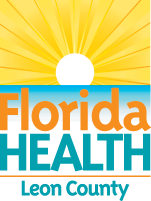It's a New Day in Public Health.
The Florida Department of Health works to protect, promote, and improve the health of all people in Florida through integrated state, county, and community efforts.
Frequently Asked Questions: Meningitis
December 11, 2018
On Nov. 6, the Florida Department of Health in Leon County (DOH-Leon) received a report of the tragic death of a young woman in Tallahassee.
DOH-Leon worked with the medical examiner to investigate the death and determine if there was a risk to the public.
Last week, the medical examiner released a report confirming meningitis as the cause of death.
However, the type of meningitis has not been determined.
In an abundance of caution, the health department has already reached out to close contacts who may have been at risk.
Persons in the community with casual contact, such as classmates, do not need to receive antibiotics, regardless of the type of meningitis.
What is it? Meningitis is an infection of the lining of the brain and spinal cord. There are many causes, including bacteria and viruses. Bacterial meningitis is generally more serious. For teens and young adults, the most common causes of bacterial meningitis are meningococcal and pneumococcal.
How common is bacterial meningitis? Fortunately, even though the bacteria that can cause meningitis are common, the chance of becoming ill with bacterial meningitis is very low.
What are the symptoms of meningitis? Meningitis typically causes a severe headache, high fever and stiff neck. Other symptoms include confusion, nausea, vomiting and sensitivity to light. Unfortunately, many of these symptoms can also occur in other more common illnesses such as the flu. Seek medical help if you are unsure.
Do I need antibiotics if I know someone with meningitis? The answer depends on the type of bacteria causing the meningitis and the type of contact you had with the ill individual. For most types of meningitis, contacts do not need antibiotics. For meningococcal meningitis, antibiotics are recommended for household members and those who somehow shared saliva (kissing; sharing cigarettes, eating utensils, or drinks; etc.) during the week prior to the person becoming ill. Casual contacts in the classroom and elsewhere do not need antibiotics. Contacts to contacts do not need antibiotics. The health department determines who needs antibiotics by speaking with the family, roommates and friends. Medical information is confidential and can only be discussed with those who have a need to know.
How can I prevent meningitis? The most effective way to protect you and your child against certain types of bacterial meningitis is to get vaccinated. The recommended vaccination schedule for children and teens includes vaccines that help prevent three types of meningitis (meningococcal, pneumococcal and Hib).
What about the Men B vaccine? The relatively new meningococcal B vaccine protects against an additional strain that is not covered by the routinely recommended vaccinations. Currently, it is recommended for individuals with immune system problems and those who live in communities with an outbreak of meningococcal B disease. Healthy individuals may elect to get the Men B vaccine, preferably at age 16-18.
For more info on vaccinations, speak with your medical provider or your local health department or visit: https://www.cdc.gov/vaccines/vpd/vaccines-diseases.html
For more information on meningitis visit: https://www.cdc.gov/meningitis/bacterial.html
If you have questions or concerns you can call the DOH-Leon at (850) 933-4750.
###
About the Florida Department of Health
The department, nationally accredited by the Public Health Accreditation Board, works to protect, promote and improve the health of all people in Florida through integrated state, county and community efforts.
Follow us on Twitter at @HealthyFla and on Facebook. For more information about the Florida Department of Health please visit www.FloridaHealth.gov.





Connect with DOH